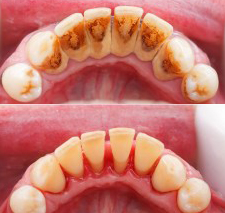


Start to mix the soda and peroxide with a clean spoon.Mix a few teaspoons of baking soda in a dish with a small amount of peroxide.Stop and spit out the solution if it’s hurting your mouth and try not to swallow any of the mixture.Swish this mixture around your mouth for about 30 seconds to 1 minute.Mix equal amounts hydrogen peroxide with water, such as 1/2 cup to 1/2 cup.There are two ways: swishing it around your mouth, or mixing it with baking soda and setting it on your teeth as a paste before rinsing. How do you use hydrogen peroxide as a teeth whitener? This means if you’re using short, low-concentration treatments, you’ll have to perform more treatments to achieve your desired whiteness. But to achieve the same level of whiteness, one would need to whiten teeth with the 5 percent solution 12 times to get the same level of whitening as one time with the 25 percent solution. This suggests that low-concentration treatments of hydrogen peroxide, applied for shorter periods, have the least potential to damage your teeth.Īccording to a 2004 study, scientists found that a 5 percent hydrogen peroxide solution was just as effective as a 25 percent solution at whitening teeth. They found that higher concentration solutions caused more damage to teeth, as did keeping the teeth in contact with hydrogen peroxide for a longer amount of time. In a 2007 study, scientists applied diluted hydrogen peroxide solutions of 10, 20, and 30 percent to human teeth that had been extracted for varying amounts of time.

Concentrations that are too strong can damage the enamel, or outer coating, of your teeth. The amount of hydrogen peroxide in commercial whitening treatments varies and can be as much as 10 percent in some products.īut studies suggest dilution is a good thing when it comes to using hydrogen peroxide for teeth whitening. If tartar is something on your radar, see your hygienist and get proactive in taking care of it right away.Here’s what you need to know: Most hydrogen peroxide bottles you can buy at a drugstore or grocery store are diluted to around 3 percent. Good oral hygiene and regular dental visits are and will continue to be the best treatment. What about a rinse that that can dissolve tartar? It may be a useful addition in the future, but more research is needed before you'll find one on your drugstore shelves that your hygienist will approve. Remember that your dental hygienist is trained to use tools to help you remove your tartar and that trying to use sharp instruments in your mouth is dangerous. That's why one of the things every hygienist does is to help you remove it. Plaque control directly relates to tartar prevention and is known to prevent cavities, gingivitis, and gum disease. Brushing at least twice a day and flossing daily will go far in reducing the need to look for ways to remove tartar.
Remove tartar from teeth professional#
You can do this with proper home care and visiting the dentist regularly for check-ups and professional cleanings.
Remove tartar from teeth how to#
Until then, if you're wondering how to reduce the amount of tartar that forms on your teeth, the best thing you can do is to reduce plaque and calculus buildup in the first place. If a mouth wash arises that research shows as a great option for dissolving tartar, they'll be all for it. So, what would your hygienist think about dissolving your tartar? Well, as dental professionals do, they'll go with the research. This study was not conducted on a human mouth, and of course, no one wants to swish mouthwash for that long! But only after it had been soaking for 4.5 and 16 hours. A percentage of the mineral content of the tartar was dissolved in the rinse. The study found that there was 47 % more new calculus and 10% more new plaque formed when using the antimicrobial mouth rinse versus the anti-calculus rinse.Īnother study tested an anti-tartar rinse's effectiveness by soaking calculus samples in vitro or in the laboratory setting. One study compared chlorhexidine's use - an antimicrobial mouth rinse widely used in dentistry - and a commercial anti-calculus mouth rinse. It would be nice to be able to wash tartar away, wouldn't it? The truth is the jury is still out on the effectiveness of tartar removal rinses.


 0 kommentar(er)
0 kommentar(er)
